This is the account of the bombing of the Old Palace School, an Auxiliary Fire Service (AFS) substation, in St. Leonard's Street, Bow, on 19 April 1941. The raid led to the sad loss of 32 firemen and 2 firewomen. This is still today the largest ever loss of life for the fire service at one incident.
Researcher Paul Chiddicks has shared his findings with us, and how this linked to his family history research.
I have been researching my family tree for around 20 years and have strong links to Kent, Essex and East London and it was whilst I was researching my maternal line of Woottons, that I discovered a rather harrowing story involving one of my ancestors.
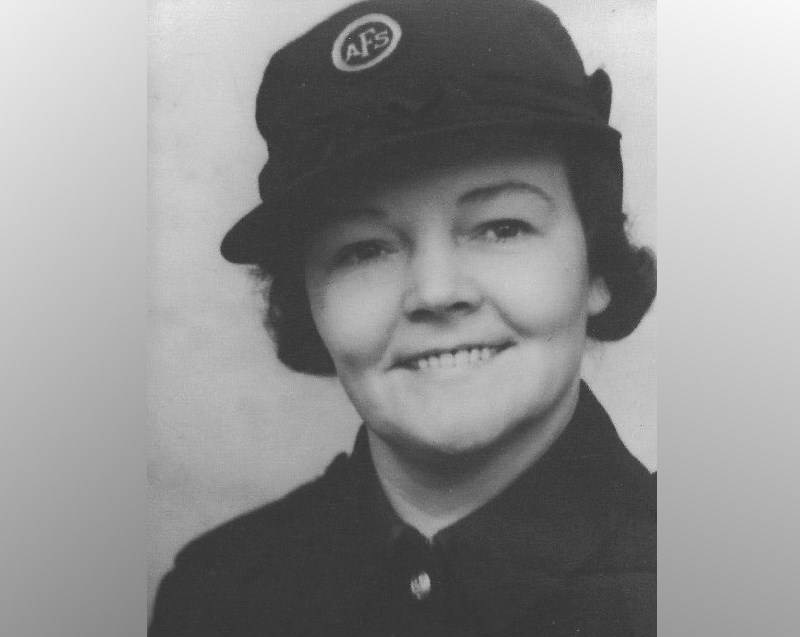
Winifred Alexandra Peters. Credit Paul Chiddicks
I discovered that my great aunt, Winifred Alexandra Peters (nee Wootton) had died during a Second World War bombing raid in Poplar in London. Having a keen interest in military history, this obviously piqued my interest and what transpired was a five-year research project into what happened and how my great aunt sadly lost her life.
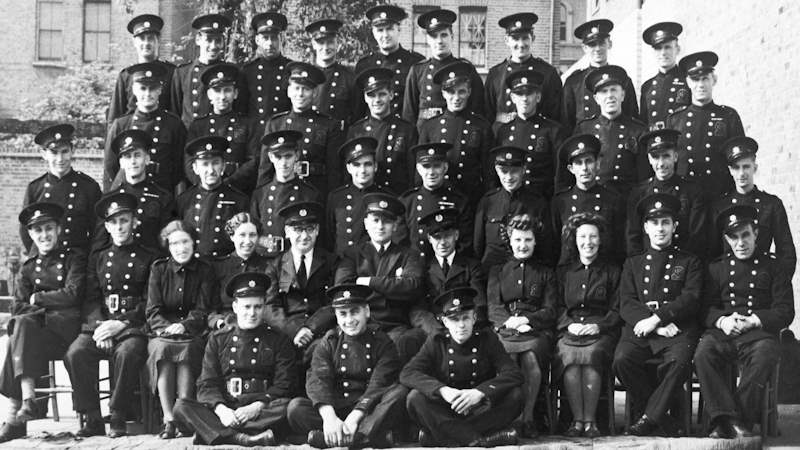
Men and women of the Auxiliary Fire Service, taken around 1941
In 1938 the Auxiliary Fire Service was formed to prepare for war on the Home Front. As it was obvious that a large number of firefighters would be needed to prevent London becoming little more than a smoking ruin. The answer was to expand the regular Fire Brigade by forming a volunteer fire service and by the 1 September 1939 about 89,000 men and 6,000 women were mobilised countrywide for full-time service in the AFS.
London Fire Brigade and the 66 smaller Brigades in the Greater London Region, were organised into five Districts. For each regular station area, an average of six substations were set up, staffed by the AFS, with a regular Sub-Officer in charge. Garages, filling stations and schools, empty since the evacuation of children, were all commandeered for use as temporary fire substations.
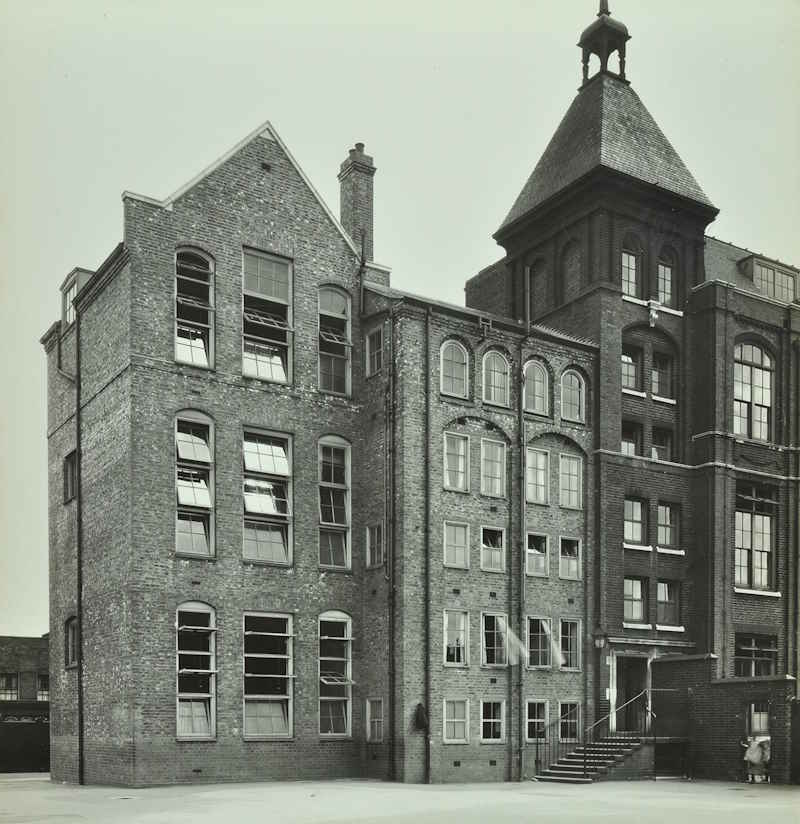
Old Palace School, St. Leonard's Street © The London Archives (City of London)
In 1941 the Old Palace School, in Poplar, was a London County Council board school consisting of four storeys. The school became AFS substation 24U, under Brunswick Road Fire Station.
The night of April 19 was a Saturday and Hitler’s birthday. In celebration, Reichsmarschall Goering had launched an attack on London intended to be the heaviest so far. 1026 tons of high explosives and 153,096 incendiaries are estimated to have been dropped on the capital that night. The sky was overcast and low cloud and drizzling rain, made targets difficult to identify, so the heavy bombing was scattered over a wide area and 1400 fires were started.
By midnight the situation was bad enough in the area around Poplar and further east, in West Ham and Walthamstow, for calls for assistance to be sent south of the river. Four crews from Beckenham were standing by at Woodside Fire Station, just outside Croydon. They arrived at Brunswick Road Fire Station, just after 1am and were given tea and biscuits before being directed to the Old Palace School, to wait for further instruction.
There, along with crews from Hackney and Homerton, the firemen from Beckenham were mustering in the playground, when at 1:53 am the school received a direct hit from a parachute mine. The bomb penetrated the roof of the school building and fell down the stairwell, at the bottom of which was the watch room, where two AFS Firewomen, Winifred Peters and Hilda Dupree, were on duty. They were killed instantly. Most of the firemen waiting in the playground were killed in the blast and then almost simultaneously buried by part of the school which collapsed. Fire broke out in what was left of the building.
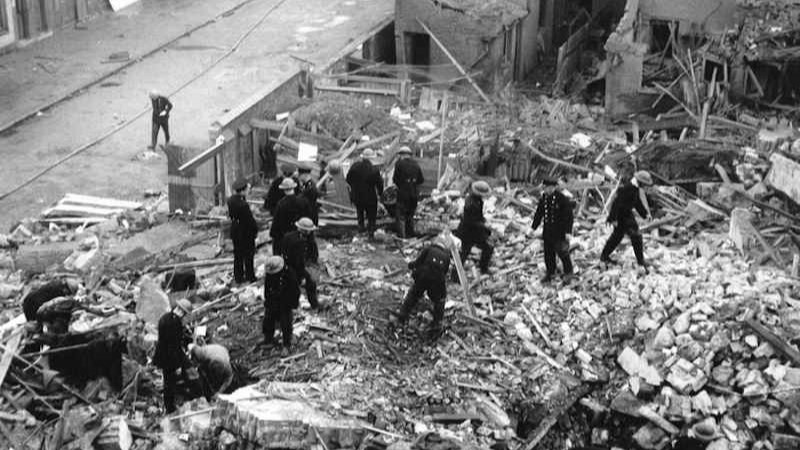
The aftermath of the bombing. Credit Paul Chiddicks
By the morning the fire was out and the rescuing the injured and recovering the dead had begun. First to be recovered were the women from the watch room, including my Great Aunt, and their bodies were laid on stretchers on the pavement. The recovery of all those killed took almost a week, with rescuers working in shifts. Of thirty-two men and two women who died there, all but one, Station Officer Sinstadt, were auxiliaries.
They say that serendipity plays a part in family history. Two weeks after my great aunt Winifred Alexandra Peters sadly lost her life here, my mum was born and she was named after her aunt, “Winifred Alexandra Wootton”.
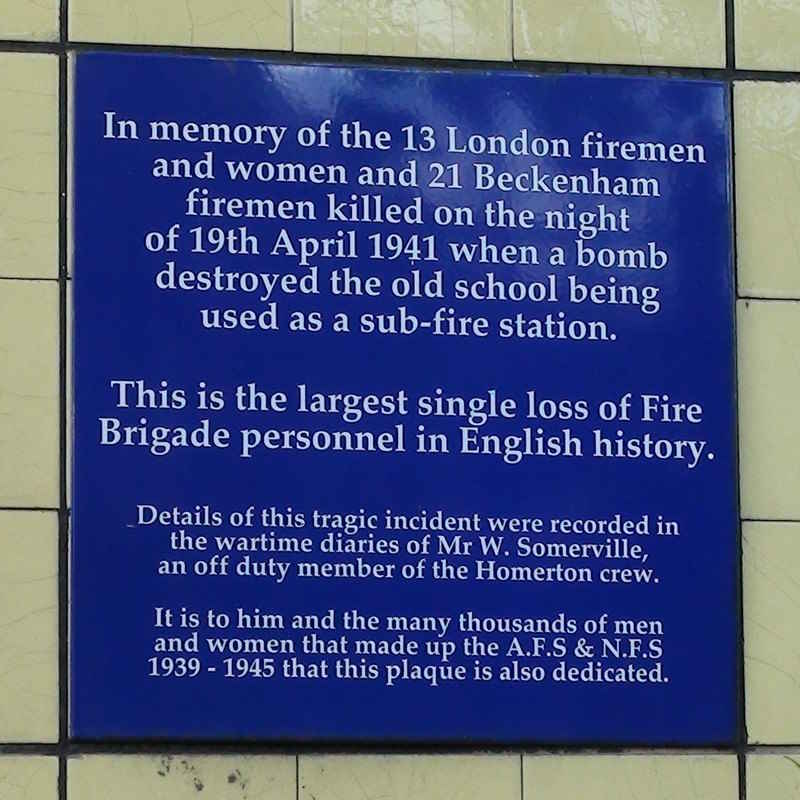
Memorial at Lansbury Lawrence Primary School. Credit Paul Chiddicks
My research into this incident has now continued and I have built a website dedicated to the memory of every firefighter that sadly lost their life on that fateful night.
For more about the Old Palace School incident, and stories about each of the 34 fire service personnel, you can visit Paul’s website here.